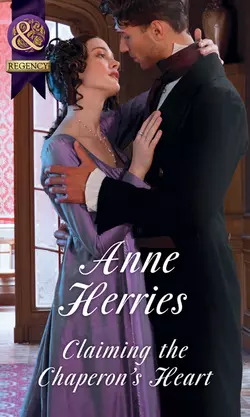Claiming The Chaperon′s Heart

Anne Herries
Тип: электронная книга
Жанр: Современная зарубежная литература
Язык: на английском языке
Стоимость: 458.46 ₽
Статус: В продаже
Издательство: HarperCollins
Дата публикации: 16.04.2024
Отзывы: Пока нет Добавить отзыв
О книге: A lord…a widow…a chance worth taking!Lord Frant is haunted by his experiences in India, which left him scarred and with an enemy at his back! Love is the last thing on his mind! Until, that is, he meets his ward’s beautiful new chaperon, Lady Jane March…After the death of her husband, Jane resolved not to marry again. But when Paul′s dangerous life catches up with him, she throws caution to the wind. Together, they must chase away the past and find a new future!